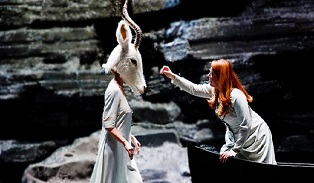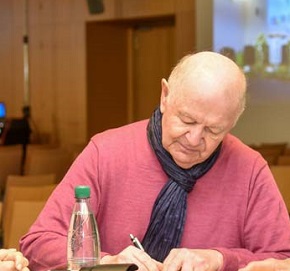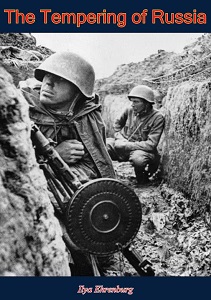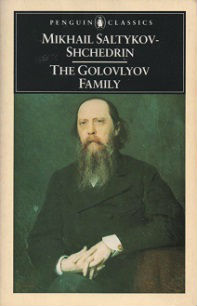|
De Brits-Amerikaanse schrijver Alexander Stuart werd geboren op 27 januari 1955 in Brighton. Zie ook alle tags voor Alexander Stuart op dit blog.
Uit: The War Zone
“I'd be there now, getting soaked, if I wasn't so determined to speak to Jessica. If I can get her alone, there are a good few questions I'm going to ask, but it's as if she senses this. She's playing for time, Miss Florence Nightingale, helping Mum change the baby and scrub the vegetables for dinner. I'm in the doghouse, meanwhile, for dumping all the shopping in the rain. I watch Dad. I watch everyone. Suddenly I feel like a spy. I'm the one who's different, I'm the one with the knowledge — I wouldn't trust me, if I was them. What's changed? My mind is working overtime, reassessing everything. But Dad seems the same, snapping open a beer as he dumps himself into one of the cottage's chintzy armchairs to sort through a pile of unopened office mail. `How far would we have to go, do you think,' he ponders aloud, screwing his face up into a mask of weariness and disgust, `to get away from all this crap?' `Not much further,' Mum offers from the kitchen. 'Another phone call like yesterday's, and they'll probably take you at your word.' There's a long pause in which Dad seems to be replaying yesterday's phone call, enjoying the recollection of what was obviously a choice exchange. `They love it,' he says. 'Panics the accountants. They won't know what they've got unless they're made to sweat blood for it.' When it comes to work, Dad likes a bit of passion to enter into things. I don't think he's happy unless emotions are aroused, and certainly where his current scam is concerned — a bloody great steel and glass pyramid for a Korean bank in Docklands —he's played devil's advocate from day one. Bad enough that he has to work for these wankers, he says — no reason to make it easy for them. But I think it's a bluff. I think his work is what drives him, and coming down here to Devon has nothing to do with getting away from it all, it's just another way of giving them the finger. Dad peers in the direction of the kitchen, stuffing the torn envelopes he's been opening into one of the big manila ones.”

Alexander Stuart (Brighton, 27 januari 1955)
Cover DVD
De Belgische, Franstalige, schrijver Guy Vaes werd geboren op 27 januari 1927 in Antwerpen. Zie ook alle tags voor Guy Vaes op dit blog.
Uit : Une descente aux Enfers. À propos de Hugo von Hofmannsthal
« l renoncera donc au crépusculaire et maladif Böcklin, pour s’exposer aux clartés précaires de ceux qui expérimentèrent le pointillisme : Derain, Maurice Denis et Van Gogh qu’embrassera finalement la dévorante clarté du Midi.
C’est ainsi que Jean-Yves Masson, sachant que si l’on a parlé du Haut on ne peut trop longtemps délaisser le Bas, crainte d’altérer la crédibilité du réel, insistera, sans jamais faire appel au jargon des philosophes, sur la symbolique des couleurs dans La Femme sans ombre. L’atelier d’un teinturier y tient une place, sinon un rôle, essentiel. D’où la conclusion de Masson : « La couleur est pour Hofmannsthal cet élément capable de réconcilier une jouissance parfaitement sensuelle du monde avec la dignité spirituelle de l’homme. » Et il ajoute : « Si ma Femme sans ombre ne pouvait rester un opéra, c’est peut-être parce qu’une telle thématique ne débouche pas sur un éloge implicite de la peinture. » Bref, encore un appel du monde réel, et même sinistrement réel, vers lequel nous glissons.
Abordant ce que Hofmannsthal appelle « le mystère de la pleine lumière », phénomène qui risque d’amoindrir le visible pour peu qu’on incline vers l’abstraction, sinon vers une approche mystique, nous ferons à nouveau pencher la balance vers la couleur, elle qui constitue l’univers matériel, la harcelante abondance des formes qui en sont le support.
Il est d’autant plus important de s’en imprégner qu’elle, la couleur, est promesse de guérison. Suivons Masson dans son analyse des deux dernières Lettres du voyageur à son retour : « Le voyageur dont l’âme est atteinte d’une maladie spirituel le qui caractérise toute la conscience européenne moderne entrevoit comme la possibilité d’une guérison en découvrant les toiles de Van Gogh, parce que celles- ci livrent, dans le discours muet de la couleur, la chair même du monde. Il ne fait pas de doute que c’est la genèse d’une telle perception régénérée que voudrait restituer l’écriture de La Femme sans ombre."

Guy Vaes (27 januari 1927 – 27 februari 2012)
Scene uit een opvoering van de opera "Frau ohne Schatten“, Berlijn, 2017
De Duitse dichter en schrijver Bernd Jentzsch werd geboren op 27 januari 1940 in Plauen. Zie ook alle tags voor Bernd Jentzsch op dit blog.
Uit: Irrwisch
Schon geh ich in die Knie, auf dem Buckel ein Bündel
Toter Zwillinge, die zucken und gebärden sich,
Als wären sie noch am Leben, die halbierten Vaterländer,
ich meine das Meine und eure zwei, meine Brüder,
Jetzt sind es schon vier, sie vermehren sich
Schnell nach jeder Badekur, und die gevierteilten Städte
Zu Lande und zu Wasser, im Himmel wie auch auf Erden,
Wie heißt die eine, aus der ich gefallen bin?
Sprich lauter, ich kann nichts verstehen,
Die Fangschüsse, die Volltreffer, die Tellerminen
Aus dem Staatshaushalt, so heißt sie nicht,
wie heißt sie, die sich so viele Hunde hält
Im Graben vor der schönen Akademie der schönen Künste,
Zwölf Rudel, die dich verarbeiten ohne Wenn und Aber,
Aher wenn du es hinter dir hast, darfst du kommen
Drei Tage und ewig, mein zusammenhangloser Bruder,
Ach, wie heißt sie, es ist ein schöner Name,
Wenn du da bist in Sack und Asche
Flüstere ich ihn dir ins fehlende Ohr.

Bernd Jentzsch (Plauen, 27 januari 1940)
De Russische dichter en schrijver Ilja Ehrenburg werd geboren op 27 januari 1891 in Kiev. Zie ook alle tags voor Ilja Ehrenburg op dit blog.
Uit: The tempering of Russia (Vertaling door Alexander Kaun)
“JULY 18
I met the commander of a partisan detachment. There are among the partisans some peasants who had fought in such squads twenty-three years ago. These are regarded as professors. There are also mere kids. An army of grandfathers and grandchildren.
An old forester leaped from a tree on a German motorcyclist, gripped his throat, and made him drive to our forces. Three German parachutists landed on a hilly field near a pioneers' camp. A group of children teased them and made them fire all their bullets while they kept hiding behind little mounds. When the Germans had no more bullets, the children jumped at them with threshing-flails and drove them to the nearest town.
Soviet boy scouts:
Here is an order of the German command:
BURGHERS AND VILLAGERS! Should partisans be discovered on the territory of your town or village about whom you have failed to report to the German command, all of you, without exception, will be put down as spies of an enemy state and as such will be hanged.
The "burghers and villagers" read the order, but they fail to report; they are Soviet people. In one village the Germans beat little children before their mothers' eyes in order to force information about the whereabouts of the partisans. The mothers keep silent.”

Ilja Ehrenburg (27 januari 1891 – 31 augustus 1967)
Cover
De Russische schrijver Mikhail Saltykov-Shchedrin werd geboren op 27 januari 1826 in Spas-Ugol, Tver. Zie ook alle tags voor Mikhail Saltykov-Shchedrin op dit blog.
Uit: The Golovlyovs (Vertaald door Olga Shartse)
“A kind of doom seems to hang over some families. One notices it particularly among the class of small landowners scattered all over Russia who, having no work to do, no connection with public life, and no political importance, were in their day sheltered by serfdom, but now, with nothing to shelter them, are ending their days in their crumbling country-houses. Everything in those pitiful families’ existence — success and failure alike — is blind, unexpected, haphazard.
Sometimes such a family is suddenly caught up as it were by a wave of good luck. Some humble retired lieutenant and his wife vegetating in the wilds of the country suddenly produce a whole bevy of spruce, alert, sturdy children who show a wonderful aptitude for mastering the essentials of life. They are ‘"clever” children, all of them, both boys and girls. The young men do excellently at school and, while still there, form good social connections and find patrons. They know when to behave modestly {‘'J'aime cette modestier their superiors say) and when to show independence {''faime cette independancer) ; are very sensitive to every wind that blows and never break with any movement without leaving a safe loop-hole through which they can creep back if necessary.
Thus they ensure that as long as they live they can either shed their skin at any time without any trouble at all, or, in case of emergency, to change back into it again. In short they are true children of the age who always begin by seeking favours and almost always end by perfidy. As to the girls, they, too, further the family fortunes in their special line, that is, they make good marriages and afterwards show so much tact in bestowing their charms that they easily win prominent positions in so-called society.
Thanks to all these chance circumstances, luck simply pours upon the humble family. Its first successful members having won their way through bring up another spruce generation who find life easier because the path has not merely been marked for them but beaten down, too. That generation will be followed by others until at last the family naturally becomes one of those who regard a life of continual jubilation as their birthright.“

Mikhail Saltykov-Shchedrin (27 januari 1826 – 10 mei 1889)
Cover
De Duitse schrijver Balduin Möllhausen werd geboren op 27 januari 1825 in Bonn. Zie ook alle tags voor Balduin Mölhausen op dit blog.
Uit: Indianer auf dem Kriegspfad
„Nehmt dem nordamerikanischen Continent die eingeborenen Jäger und die wandernden Bisonheerden, und er verliert die letzte Poesie, mit welcher ihn die freigebige Natur so reich bedachte und die weder durch Eisenbahnen, noch durch weithin sichtbare Schornsteine von Brennereien und Fabriken, weder durch eine nach manchen Richtungen hin gewissenlose innere Politik, noch durch salbungvolle Lehren fanatischer Priester ersetzt werden kann.“ Diese Ansicht sprach ich in einem frühern Werke aus, als ich des rücksichtslosen Vordringens der Civilisation und des in Folge dessen fast unvermeidlichen Unterganges einer ganzen Menschenrace erwähnte.
Ganz dieselben Worte wiederhole ich hier, indem ich meine Blicke auf die bildliche Darstellung einer Gruppe von Assineboin-Indianern hefte; aus inniger, fester Ueberzeugung wiederhole ich sie, unbekümmert darum, ob der in denselben liegende harte, aber gerechte Vorwurf nur einzelne Individuen oder ganze Nationen trifft. – Oder sind die rothhäutigen Krieger und die zottigen Bisons vielleicht nicht würdig, als die Poesie bezeichnet zu werden, welche die endlosen Wildnisse, die oceanähnliche Prairie wie den undurchdringlichen Urwald, die anmuthigen, reich bewässerten Thäler wie die majestätischen, eisgekrönten Gebirgszüge so entsprechend, so romantisch belebt?“

Balduin Möllhausen (27 januari 1825 – 28 mei 1905)
Een tekening van vier Indianenstammen door Möllhausen uit 1861
De Engelse acteur en toneelschrijver Samuel Foote werd geboren 27 januari 1720 in Truro, Cornwall. Zie ook alle tags voor Samuel Foote op dit blog.
Uit: The Lame Lover
“SERJEANT.
Why, hussy, you don't hint at your mother-in-law?
CHARLOT.
Indeed, Sir, but I do.
SERJEANT.
Ay; why this is point blank treason against my sovereign authority: but can you, Charlot, bring proof of any overt acts?
CHARLOT.
Overt acts!
SERJEANT.
Ay; that is any declaration by writing, or even word of mouth is sufficient; then let 'em demur if they dare.
CHARLOT.
I can't say that, Sir; but another organ has been pretty explicit.
SERJEANT.
Which?
CHARLOT.
In those cases a very infallible one—the eye.
SERJEANT.
Pshaw! nonsense and stuff.—The eye!—The eye has no authority in a court of law.
CHARLOT.
Perhaps not, Sir, but it is a decisive evidence in a court of love.
SERJEANT.
Hark you, hussy, why you would not file an information against the virtue of madam your mother; you would not insinuate that she has been guilty of crim. con.?
CHARLOT.
Sir, you mistake me; it is not the lady, but the gentleman I am about to impeach.
SERJEANT.
Have a care, Charlot! I see on what ground your action is founded—jealousy."

Samuel Foote (27 januari 1720 - 21 oktober 1777)
Russell Beale als Samuel Foote in een uitvoering van “Mr Foote’s Other Leg”, Londen, 2015
Zie voor bovenstaande schrijvers ook mijn blog van 27 januari 2007 en ook mijn blog van 27 januari 2008 en eveneens mijn blog van 27 januari 2009.
|



